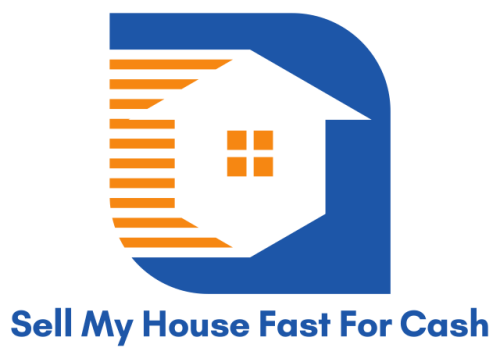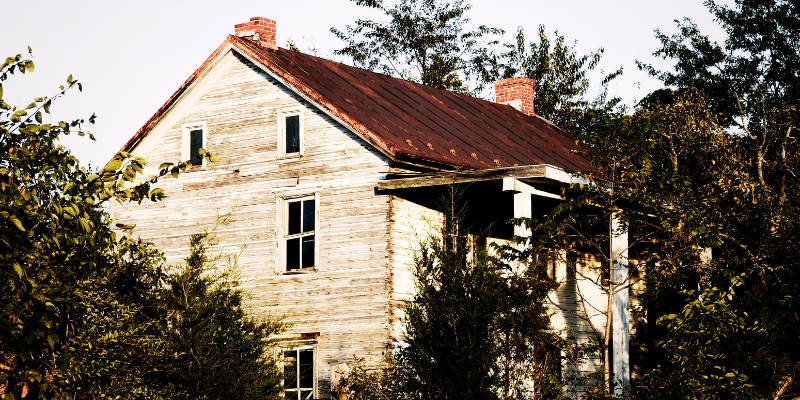
Selling a condemned house in Washington is tough, but with information and guidance, it’s possible. This guide provides practical suggestions to help you understand the complexities. Understanding local laws and locating buyers are crucial to avoiding foreclosure or moving on. We simplify the process so struggling homeowners may sell their house with confidence. Explore how to turn challenges into opportunities.
Understanding the Concept of a Condemned House in Washington
It’s hard to sell homes that have been condemned. These things are strictly controlled by state rules, especially in Washington. Each state and legal situation makes the problems and opportunities for condemned houses different. To handle properties well, you need to know why they are condemned. This foundation makes the process easier by letting buyers and residents choose their own maintenance and compliance.
Criteria for a House to Be Condemned
Before you sell a house in Washington that has been condemned, learn how to spot one. If a building doesn’t meet state or local safety and health standards for living, it can be torn down. Local governments often check to see if these rules are being followed. Washington condemns homes that are unsafe, don’t have the amenities people need, or have dangerous things inside them. Several things affect how livable a property is.
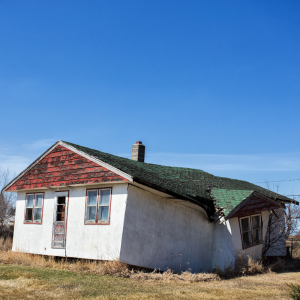
Houses that have problems with their structure are sometimes destroyed. A building that has major underlying decay or the chance of falling down could be labeled dangerous. Benchmarks are used to measure building codes and property conditions. A house that was damaged by a natural disaster might not meet these requirements and be torn down.
Property condemnation is affected by dangerous items. Mold, asbestos, and lead are all dangerous. Older homes made of these products could be torn down if they aren’t taken care of. Knowing what a “condemned condition” is could help homeowners decide whether to fix up their home or tear it down.
Lack of utilities could be very bad. Washington state has rules about how homes must be habitable that say they can’t have water, electricity, or toilets. To avoid condemnation suits, local governments often set deadlines for service return.
Common Reasons Why Houses Are Condemned
Knowing why a house has been condemned may help owners and buyers take action. Damage to structures, health issues, and breaking city laws are typical reasons. A house can be condemned if it is unsafe because of problems with the structure or systems. If the plumbing or power in a house breaks, it becomes dangerous.
When environmental problems happen on a property’s borders, it is condemned. A house can be unsafe if it has mold or other harmful substances. Water damage or carelessness can make home building worse. To avoid risks, Washington law requires people who want to buy land to regularly check the environment before they do so.
If you don’t follow the local housing rules, your home could be taken away. To get people to follow the rules, cities can tear down homes that don’t listen to the advice. After abandonment or a long court repair delay, this step is often taken. People who don’t follow the rules are often hit with fines or liens.
Indirectly, economic factors may also punish houses. Some homeowners can’t afford to move when neighborhoods and property prices change. When the chance of cooperation goes down, owners may sell foreclosed homes to investors who want to fix them up. Through investment and modern building limits, resale and renovation bring life back to areas.
If your property has been condemned or needs major repairs, don’t stress. Here’s how Sell My House Fast For Cash can help you navigate the process smoothly, handle the necessary steps, and move forward with confidence.
Legal Processes in Selling a Condemned House in Washington
Washington demands legal competence, state law compliance, and local laws to sell a condemned dwelling. Homeowners selling condemned properties must know the laws and documentation. Selling such properties requires local government cooperation and real estate procedures. Selling a condemned home in Washington requires specific laws.
State Regulations in Washington
Selling a condemned house in Washington involves state law expertise. No matter the condition, any property for sale must fulfill state safety and legal standards. These rules protect future buyers and neighborhoods. Washington starts the condemnation with a thorough property inspection. Local governments provide instructions to house sellers to comply with laws.
Sellers explain why the property was condemned. Fixing structural and foundation issues, health risks, and building code violations is usually necessary before selling. If the property fails state habitability standards, major repairs may be needed. Homeowners may require help ensuring legal corrections.
Finding local government documents is part of following these rules. This paperwork typically permits planned repairs and state compliance afterward. Washington’s real estate market, especially distressed homes, needs transparency. Sellers must inform buyers of the property’s status, including its condemned label.
Understanding the state’s fair housing focus is key. Selling requires legality and no discrimination. Washington-savvy realtors can assist. They prepare all legal documents before selling the condemned property, ensuring a swift and legal process. Learning and obeying state laws helps sellers negotiate Washington’s condemned house transactions.
Steps to Sell Condemned Properties in Washington
Selling condemned homes is complicated legally and administratively. These procedures ensure Washington real estate sales follow state laws and market integrity. Homeowners should first determine why authorities condemned their property. This examination usually involves qualified inspectors determining infractions or deficiencies. All the following activities depend on this evaluation, which identifies needed repairs or revisions to sell the property.
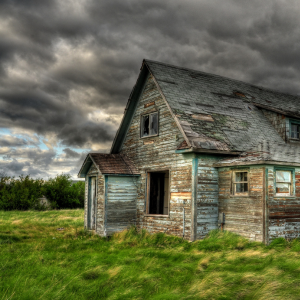
After assessing repairs, homeowners should contact condemned property contractors. Repairing the property is difficult but important for safety and legality. Washington may use structural fortification, lead paint, or asbestos removal. These issues can be remedied to legalize the sale and boost property value, enticing buyers.
Legal paperwork follows repairs and is necessary. To show marketability, sellers must prepare repair permits and compliance certificates. Local real estate agents familiar with Washington’s housing regulations can help during this time. To simplify legal transactions, they guarantee papers are accurate, complete, and submitted on time. Due to renovations, homeowners may consider reevaluating the property for tax purposes.
This approach should involve sellers aggressively seeking competitive cash bids. Investors in condemned properties may want to renovate. Negotiations must disclose the property’s history, condition, and Washington state compliance to avoid disputes. Sellers can sell condemned homes by communicating and updating. With care, sellers can negotiate a legal, productive, and profitable transaction in Washington’s competitive real estate market.
Selling a condemned home involves strict legal steps, but you don’t have to face them alone. Contact Sell My House Fast For Cash to make the process simple and stress-free.
Preparing Your Condemned House for Sale in Washington
Washington condemned that house sales require meticulous planning to attract purchasers. Homeowners must decide whether to renovate or sell As-Is to boost value and meet safety standards. These pre-sale procedures are vital because buyers worry about the legality and livability of condemned properties. Understanding repairs, following Washington’s compliance standards, and working with real estate professionals can increase your property’s marketability. Discuss house-selling prep.
Renovation Options for Improving a Condemned House’s Value in Washington
When selling a condemned house, smart modifications can increase its value. Renovation solutions fulfill aesthetics, safety, and structural criteria. Washington houses often violate state and local laws and are condemned. Sellers may restore liabilities into buyer-friendly investments. Fixing fundamental cracks or strengthening weak construction areas may be prioritized. This renovation improves building safety and buyer confidence.
Renovate the house’s plumbing and electrical systems. Improving these systems meets local standards and enhances home functionality. Here, “renovation options” means sensible, intelligent choices based on cost-effectiveness and market trends. Green buyers and property values can benefit from energy-efficient utilities. Repairs that improve functionality and comply with Washington property guidelines raise house value.
Cosmetic renovations matter too. Safety and compliance are crucial in condemned houses, but aesthetics can sway buyers. New paint, landscaping, and fixtures may make a significant difference. Enhancements strengthen market perception and encourage purchases. Strategic staging can make a condemned home appealing. Renovations should balance safety and aesthetics to make the Washington real estate marketable.
| Renovation Aspect | Description | Benefits | Compliance Considerations | Market Appeal |
|---|---|---|---|---|
| Structural Repairs | Focus on repairing foundational issues and roof integrity. | Increases property value and ensures safety. | Must adhere to Washington building codes and safety standards. | Creates a solid, reliable impression for buyers. |
| System Updates | Upgrade electrical, plumbing, and HVAC systems. | Improves functionality and energy efficiency. | Compliance with state regulations for energy use and safety. | Modern amenities appeal to energy-conscious buyers. |
| Cosmetic Improvements | Includes painting, landscaping, and interior aesthetics. | Boosts visual appeal and can increase perceived value. | Ensure any changes conform to local guidelines, such as historical preservation. | Enhances first impressions and attracts potential buyers. |
This table encapsulates strategic renovation and compliance efforts essential for transforming condemned houses into attractive real estate offerings in Washington.
Safety Regulations and Compliance for Condemned Houses in Washington
Washington requires safety and compliance while selling a condemned home. Washington implements safety rules to safeguard people and property. This ensures condemned houses for sale are safe and meet real estate standards. Sellers must first study the local housing laws that condemn the house. Legally compliant housing renovations and upgrades follow these guidelines.
Washington safety laws cover habitability and structure. Working with local authorities is crucial because they audit these rules and assist property owners. Not following these regulations can preclude the sale of the condemned property. Sellers should work with qualified inspectors and skilled contractors to make state-compliant and building-safe adjustments.
Understanding compliance goes beyond repairs. Buyers and regulators require compliance proof. Repair permits and Washington compliance certificates are included. Transparent records reassure buyers about the property’s legitimacy, making the sale easier.
Compliance with Washington’s framework lets homeowners sell condemned property lawfully and increase its value. It reassures buyers of the property’s safety and value, decreasing post-sale disputes. Therefore, “safety regulations” and “compliance” preclude building conversions to profitable real estate transactions. This updates the property to modern standards, increasing trust and attracting Washington homebuyers.
Don’t let repairs or compliance issues stop you from selling. A cash for houses company in Washington and other states in the United States can help you restore value and make your home appealing to buyers again.
Finding the Right Buyers for a Condemned House in Washington
Selling a condemned house in Washington requires buyers who see the potential and value despite the obstacles. These homes draw investors and real estate experts seeking opportunities. Find a niche market that likes cashback and discounts. Selling to buyers interested in Washington’s unique real estate market may require knowing your target market for condemned houses.
Target Market for Selling Condemned Houses
Finding buyers for a condemned house is difficult yet beneficial. Washington targets investors, developers, and flippers. These purchasers seek cheap homes to renovate and sell. Cash-paying investors buy quicker than homebuyers.
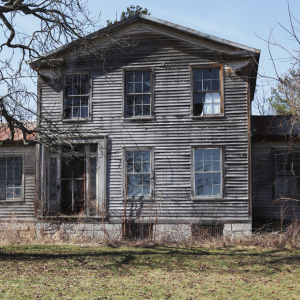
Homeowners who want to sell quickly prefer cash offers over mortgage financing due to their simplicity and paperwork. Investors often target REITs and other institutional buyers. This group seeks condemned houses in potential areas. They can revitalize and expand building portfolios. Targeting investors can help homeowners overcome real estate market challenges. Cash buyers looking to invest are also significant.
After renovation, low-priced homes may yield high returns, luring those with the skills or money to fix them. These buyers value cheap residences because they can profit from fixing them up. These purchasers are desirable since they acquire rapidly and seek to build value. Reaching buyers online is another step to choosing the right market. Websites, social media, and local real estate agent relationships promote your home.
These methods reach purchasers who are ready to buy condemned properties, notably in Washington state. The sales strategy requires finding Washington redevelopment sites. Homebuyers choose growth neighborhoods because of decreased post-renovation risk. Recognition of these zones can improve a condemned house’s appeal. These ads attract buyers interested in remodeling properties in promising parts of the state, speeding up and improving sales. Knowing the target market makes Washington’s home sales succeed.
Struggling to attract buyers for your condemned house? Cash home buyers across the United States and neighboring states. offer a quick and reliable solution for homeowners who want to sell fast.
Need to sell your house fast? Avoid repairs, skip the hassle, and get a fair cash offer today! Call us at (866) 824-3222. We handle all the details and make the selling process quick and easy.
FAQs:
What qualifies a house to be condemned in Washington?
A house can be condemned when it fails to meet state or local housing codes due to safety and health risks. In Washington, a house might be condemned if it’s structurally unstable, lacks utilities, or poses health risks due to hazardous materials.
What steps are involved in selling a condemned house in Washington?
The selling process involves addressing the reasons for condemnation, making necessary repairs, obtaining the correct documentation, and adhering to state and local regulations. Working with real estate professionals and local authorities can streamline the process.
Who are the potential buyers for condemned houses in Washington?
Potential buyers often include real estate investors and developers, individuals interested in property flipping, and institutional buyers such as real estate investment trusts (REITs), mostly attracted to the investment opportunities and profitability post-renovation.
What are the common reasons a house might be condemned?
Common reasons include significant structural failures, health hazards like asbestos or mold, lack of basic utilities, and non-compliance with local building regulations. These issues often make the property unsafe for living.
How can homeowners navigate the legal requirements when selling a condemned house?
Homeowners should engage with local authorities for guidelines on compliance, hire professionals for essential repairs, and ensure comprehensive documentation for all repairs. Consulting with experienced real estate agents familiar with Washington’s regulations is also recommended.
Helpful Washington Blog Articles
- Refinance A House After Divorce in Washington
- How to Sell a Condemned House in Washington
- Can the Seller Back Out of a Contract?
- Selling a House with Termite Damage in Washington
- Sell a House with a Code Violation in Washington
- Understanding FSBO Costs in Washington
- How to Sell a Hoarder House in Washington
- How Long After an Appraisal Can You Close in Washington?

